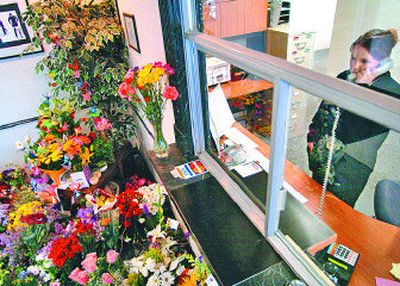Accept the fear, embrace the decency

Sometimes, when you pick up the paper or turn on the television news, when you’re blindsided by images of terror and violence against people penalized by the dumb luck of being in the cross hairs when another person snapped, it feels like Franklin Roosevelt got it wrong.
He told this country more than 70 years ago, when the population was hurting and fatigued from the Depression, that the only thing we have to fear is fear itself.
But when I read the headlines early Sunday that the night before there had been a shooting in Moscow, Idaho, and – at the time – that two men had been killed and two others injured before the shooter shot himself, what occurred to me was the same thought I had as I watched and read about the tragedy at Virginia Tech and so many other recent violent acts: In this modern, bullet-riddled world, what we have to fear the most is the person in the room or the cubicle or house beside us.
Late Saturday night, apparently after killing his wife with a bullet to the head, Jason Hamilton – a man who was no stranger to violence and was not legally allowed to have firearms – opened fire.
Hamilton terrorized the small college town. Leaving his wife’s body in their home, he killed police officer Lee Newbill and wounded citizen Peter Husmann, who ran toward the scene in a hail of bullets. He injured two other men – a sheriff’s deputy and another police officer – in that spree.
He also killed Paul Bauer, the sexton of First Presbyterian Church, and when the violent outburst was over he took his own life in the sanctuary that was waiting to hold worshippers in just a few hours.
It was a horrible, horrible night full of senseless bloodshed and violence. And the echoes of those shots will reverberate for years to come.
Left behind will be the bitter taste of fear.
Who knows why someone falls completely apart and, rather than implode into personal misery, explodes in an act of violence, scattering deadly shrapnel of anger and pain and hatred? We all know that when that kind of thing happens, you don’t have to be hit by the bullet or the bomb to be wounded.
Moscow is a small town with a big wound. And it will take a long time to mend.
It would be easy to pick at that sore and never let it heal. To be afraid and watchful and suspicious. To fear the person who might be hiding. Or the person who is hiding a potential for brutality.
What is difficult is to look for the good in the face of evil.
It is the goodness in us that sends one man running to the rescue of others, running straight into danger. It is the goodness in us that lets us feel pain for those who were struck down. It is the goodness in us that drives us to pick flowers and build memorials and altars.
It is the goodness in us that enables us to bind not only our own wounds, but the wounds of those around us.
It is the goodness in all of us that keeps us walking out into a beautiful world that could, in the hands of those who have lost their ability to feel pain, turn ugly and mean.
I guess Roosevelt got it right after all. Being afraid of what might happen, being afraid of the danger – real or imagined – that we can’t see and can’t avoid, means surrendering to fear itself.
And that is something to be afraid of.